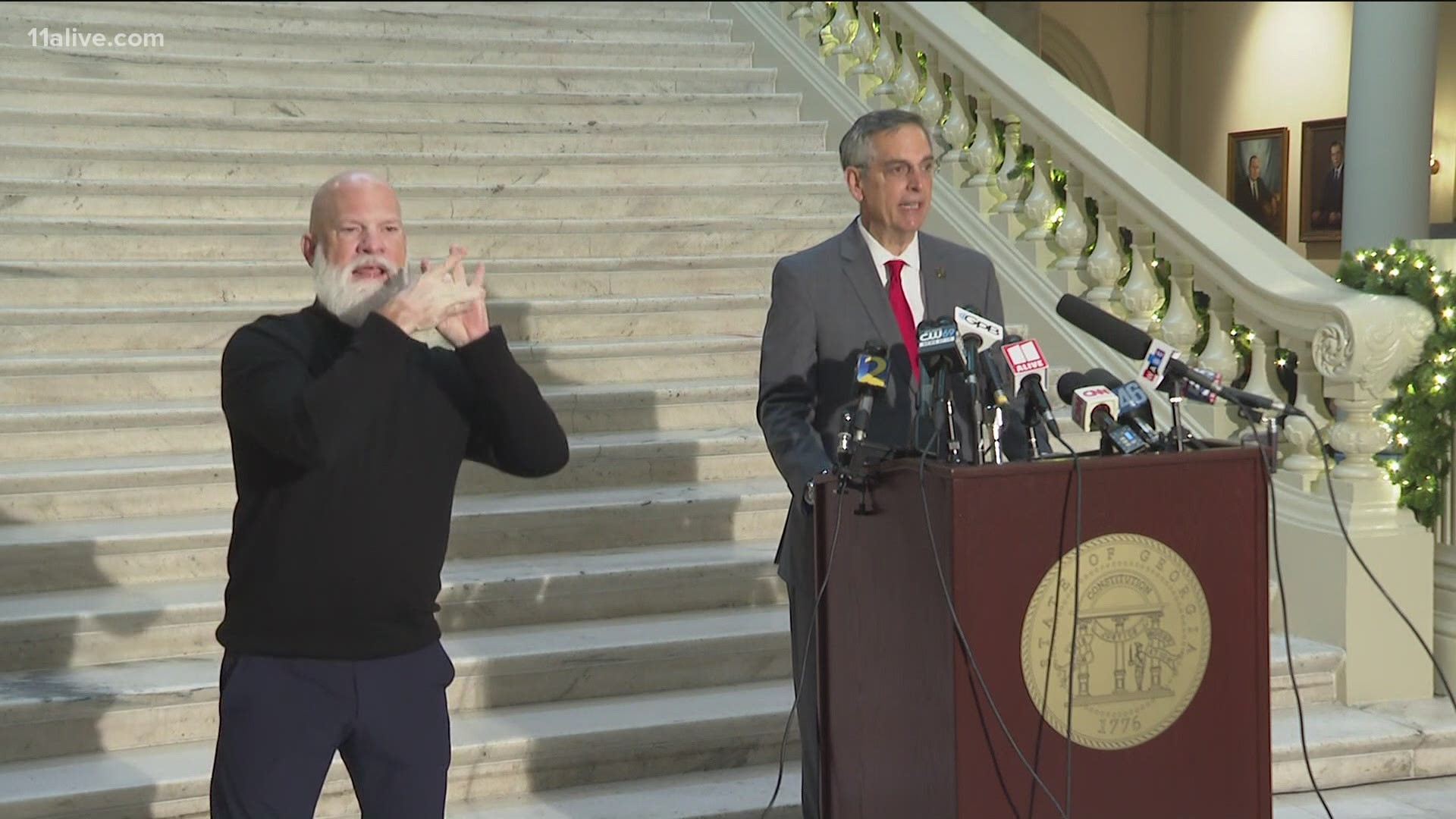ATLANTA — Georgia Sec. of State Brad Raffensperger issued one of his most forceful defenses yet against fellow Republican critics on Monday morning, responding to tweets by the chairman of the Georgia GOP criticizing him over the issue of a signature audit.
The chairman, David Shafer, had on Monday night written on Twitter that, "the time for begging elections officials to do their job and obey the law is over," in reference to the signature audit issue. He said he has filed a lawsuit contesting Georgia's election results.
Tuesday morning, Sec. Raffensperger wrote there "has been no evidence presented of any issues with the signature matching process," and characterized Shafer as "blaming others for his failures." The secretary said Shafer should have better organized observers during the original signature matching process, which Raffensperger said " was - and always has been -public and that they could observe it."
"We told him to let us know if counties gave him any issues with access. He never did," Raffensperger wrote. "It wasn’t because we didn’t issue a bulletin, it was because he didn’t have the organization in place that he needed."
Shafer had written that the secretary "broke his promise to issue a bulletin allowing us to observe absentee ballot signature verification."
The issue of the signatures used to validate absentee ballot requests and ballots has become a central sticking point in the infighting among Georgia Republicans.
President Donald Trump has increasingly agitated for audit of the signatures, and in a tweet Monday night called out Raffensperger by name (along with Gov. Brian Kemp and Lt. Gov. Geoff Duncan) as a "RINO," - Republican in name only.
Because absentee mail-in ballots are separated from the envelopes they're submitted in, and because those envelopes are the only documentation on which there is a signature, in the event of an audit of those envelopes there would be no possible way to tie "bad" signatures to the actual votes they were cast with.
But the legal strategy of the president's advocates appears to be that if some number of invalid envelopes could be found, they could argue a larger class of absentee mail-in ballots could be thrown out - all the absentee ballots in Fulton County, for instance.
At least one federal judge has already rejected that idea. In dismissing a lawsuit brought by the attorney Lin Wood, Judge Steven Grimberg in the U.S. District Court for the Northern District of Georgia noted that the suit wanted "over one million absentee ballots called into question" and that such "requested relief could disenfranchise a substantial portion of the electorate and erode the public’s confidence in the electoral process."
Judge Grimberg also rejected that there was sufficient evidence to indicate an improperly-done signature verification process had affected Georgia's results.
"Wood’s argument is that the procedures in the Settlement Agreement regarding information and signature match so overwhelmed ballot clerks that the rate of rejection plummeted and, ergo, invalid ballots were passed over and counted. This argument is belied by the record; the percentage of absentee ballots rejected for missing or mismatched information and signature is the exact same for the 2018 election and the General Election (.15%). This is despite a substantial increase in the total number of absentee ballots submitted by voters during the General Election as compared to the 2018 election," the judge wrote.

